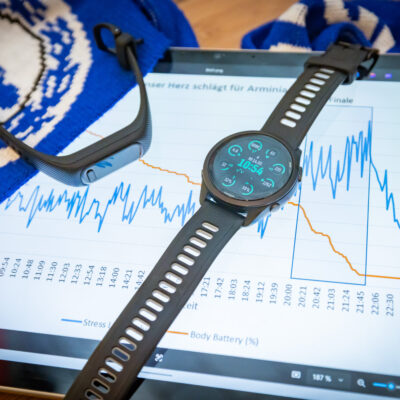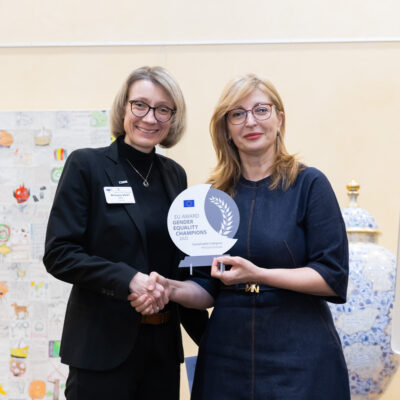The Data Literacy Charter highlights data literacy as an essential part of general education. Its signatories share a common understanding of data literacy and its importance for educational processes. Bielefeld University, Paderborn University and Bielefeld University of Applied Sciences have now jointly signed the Data Literacy Charter. The two universities and the University of Applied Sciences have been involved in the DataLiteracySkills@OWL project to teach data literacy since 2019. By signing the charter, the two universities and the University of Applied Sciences commit to taking measures to spread the understanding of data literacy and to strengthen the associated competencies.
The charter was initiated by the Stifterverband für die Deutsche Wissenschaft [Donors’ Association for the Promotion of Science and the Humanities in Germany] The Data Literacy Charter builds on the German Federal Government’s data strategy and the Berlin Declaration on the Digital Society.
The definition of data literacy is the ability to work with and use data in the proper context. Data literacy comprises the skills of gathering data carefully with a critical eye, and managing, evaluating and using it to make informed decisions.
‘Our world is marked by increasing digitalisation,’ says Professor Dr Reinhold Decker, vice-rector for Information Infrastructure and Business Relations at Bielefeld University. ‘By backing the charter, Bielefeld University is demonstrating its ongoing commitment to empowering students and academics from all disciplines in their use of data. The fact that two other universities from the region are explicitly supporting the charter together with us sends a powerful signal.’
‘Data literacy is not only essential for individual educational biographies, but for successful participation in all areas of life, both personally and professionally,’ says Professor Dr René Fahr, vice-president for Knowledge and Technology Transfer at Paderborn University. Paderborn University is therefore actively committed to firmly anchoring the guiding principles of the charter and promoting the corresponding skills at all levels.
Commenting on the signing of the Data Literacy Charter, Professor Dr Ulrich Schäfermeier, vice president for International Studies and Digitalisation at Bielefeld University of Applied Sciences, explains: ‘As a university, we recognise the importance of this future skill and are not only raising awareness of data literacy among our students, academics and staff, but also want to empower them to consider how they use data and to use it purposefully in both social and professional contexts.’
According to the charter, data literacy is the key to systematically transforming data into knowledge. Data literacy enables people to handle their own and third-party data confidently and responsibly. It empowers people to use new drivers and technologies such as big data, artificial intelligence or the Internet of Things to meet individual needs. Today, however, data literacy is also necessary for tackling societal challenges and solving global problems.
The charter defines five guiding principles associated with data literacy:
- Data literacy must be accessible to all people.
- Data literacy must be taught throughout life in all areas of education.
- Data literacy must be taught as a transdisciplinary competence across all subjects.
- Data literacy must systematically cover the entire process of insight and decision-making with data.
- Data literacy must include knowledge, skills, and values for a conscious and ethically sound handling of data.
The universities of Bielefeld and Paderborn and Bielefeld University of Applied Sciences are pursuing the goal of anchoring data literacy as a teaching and learning objective across the university in a series of projects. With the project DataLiteracySkills@OWL (DaLiS@OWL) in particular, which was launched in 2019, the universities and the University of Applied Sciences are working to prepare students for an increasingly data-driven academic world, working world and society. The project also includes the introduction of a certificate of competence for data-literate graduates developed in collaboration with the industry and academia of the region. The project is funded by the Ministry of Culture and Science in North Rhine-Westphalia. It is part of the nationwide data literacy networking initiative of the Stifterverband für die Deutsche Wissenschaft.





